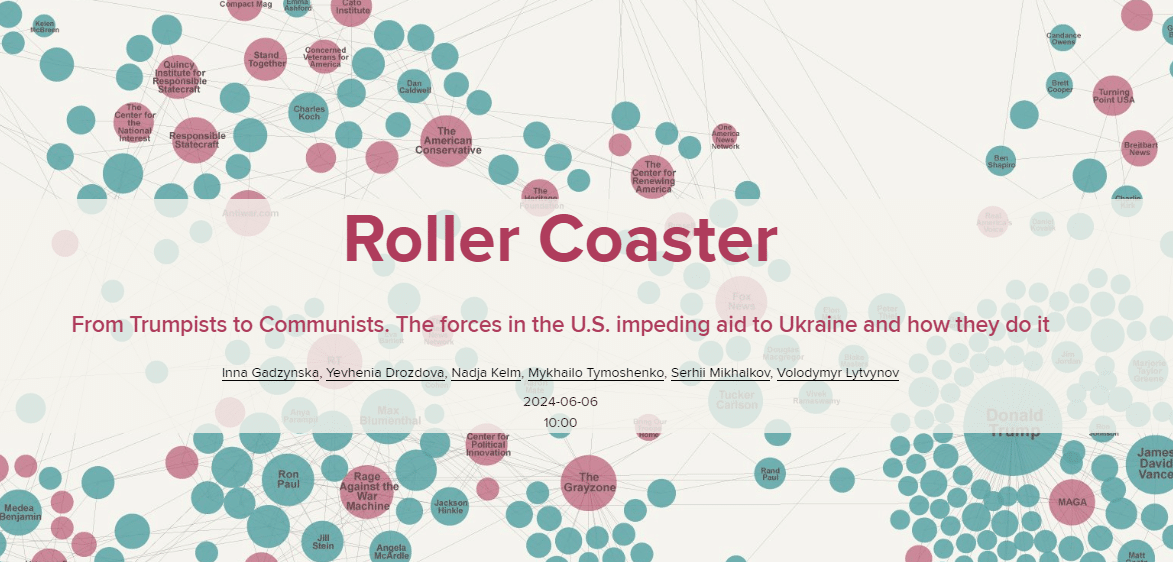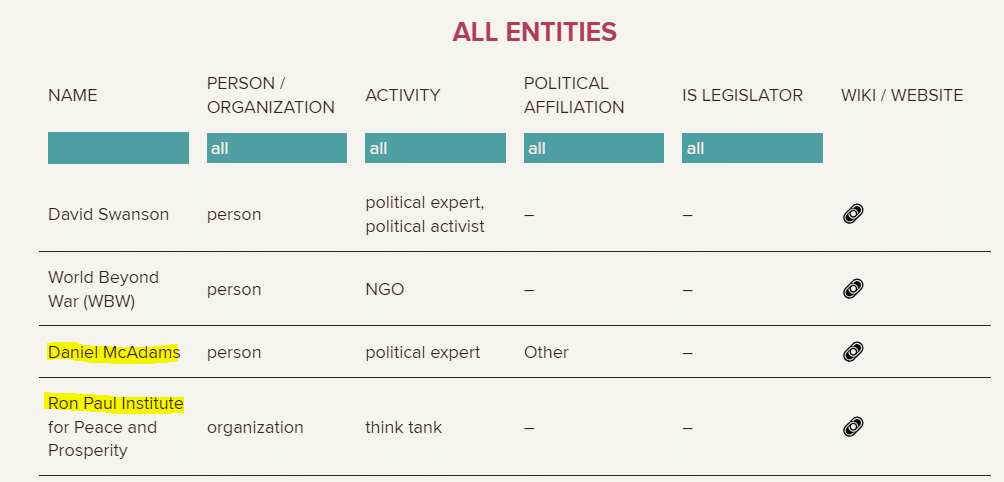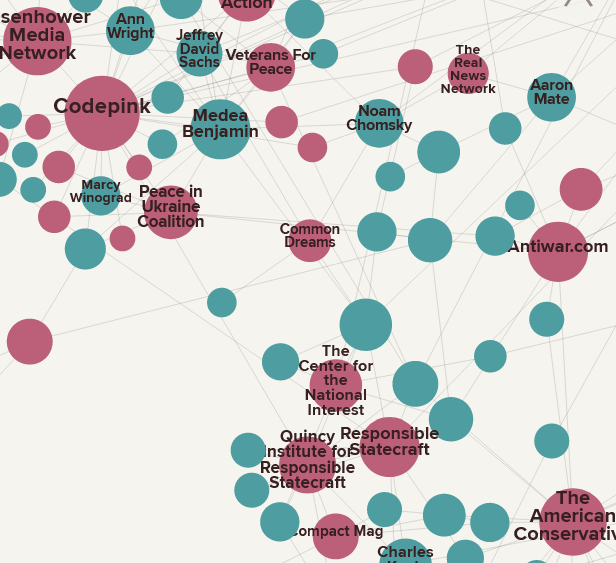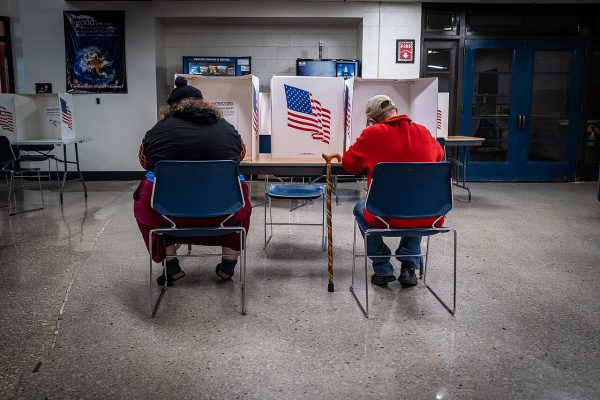US-Backed Ukrainian Publication Releases New ‘Enemies List’

The US government-affiliated Ukrainian web publication “Data Journalism Agency” (TEXTY) has just released a report attacking hundreds of prominent American individuals and organizations as enemies for not supporting sending more US money and weapons to Ukraine.
The report, titled “Roller Coaster: From Trumpists to Communists. The forces in the U.S. impeding aid to Ukraine and how they do it,” intends to smear American politicians, journalists, and social media influencers as tools of Russia, writing:
Most of the people in our study do not have direct, proven ties to the Russian government or propagandists. However, the arguments they use to urge authorities to distance themselves from Ukraine echo key messages of Russian propaganda aimed at depriving Ukrainians of the ability to defend themselves with Western weapons and funds. (emphasis added)
Although the “enemies list” purports to correct disinformation about Ukraine spread by those on its list, the report itself is full of crude disinformation. For example this bit:
Even long-debunked myths continue to surface, such as claims of Nazi dominance and American Biolabs in Ukraine and the portrayal of the 2014 Revolution of Dignity as a coup.
The organization’s assertion that these claims are “long-debunked” may be wishful thinking, but back on planet reality even mainstream, pro-Ukraine media sites in the US wring their hands over the disturbing, extremist images coming out of the country. For example, NBC News wrote that, “Ukraine’s Nazi problem is real, even if Putin’s ‘denazification’ claim isn’t.” Newsweek wondered, “Why Have So Many Neo-Nazis Rallied to Ukraine’s Cause?” Even before the current conflict, mainstream pro-Ukraine publications such as Reuters worried in 2918 about “Ukraine’s neo-Nazi problem.”
As to the biolabs, none other than Mother of the Maidan Victoria Nuland admitted in a US Senate hearing that there were biolabs in Ukraine. Ah, but one may counter that these were not “American biolabs.” In fact with the authenticity of Hunter Biden’s infamous laptop now absolutely confirmed during his trial, a report by the New York Post two years ago based on the laptop also must be considered accurate. According to the article, “Russia’s assertion that President Biden’s son Hunter was ‘financing… biological laboratories in Ukraine’ was based in truth, according to e-mails reviewed by The Post.”
And on whether the Maidan events of 2014 were a “Revolution of Dignity” or a coup, we again only need turn to Victoria Nuland’s infamous phone call with US Ambassador to Kiev, Geoffrey Pyatt, for all the evidence needed that the US was micromanaging the removal of an elected leader and replacing him with hand-picked US puppets.
The report also includes such prominent American politicians and journalists as Sen. JD Vance, Sen. Rand Paul, Rep. Matt Gaetz, Rep. Marjorie Taylor Greene, Rep. Jim Jordan, and Col. Douglas Macgregor.
Even our friends at Antiwar.com… and your own correspondent (!) find ourselves appearing on the Ukrainian “enemies list”:

As the report states:
There are 391 individuals and 76 organizations in our list. These include politicians, political movements and groups, media and journalists, experts, and think tanks (some individuals appear in multiple categories).

Perhaps what is most shocking about this attack on American citizens is the fact that the Data Journalism Agency (TEXTY) has a long affiliation with the US Government itself! In fact, the founder of the publication Anatoly Bondarenko appears prominently on a US Government website as a participant in the US State Department’s “TechCamp” project.
The Data Journalism Agency (TEXTY) is listed as an “Implementing Partner” of the US Agency for International Development’s Transparency and Accountability in Public Administration and Services/ TAPAS Project.
The Ukrainians seemingly love to make lists of their “enemies.” One of their most notorious of these is the infamous “kill list” put out by the Mirotvorets Center in Kiev. From that list several have already been murdered by Ukraine, including prominent Russian journalist Daria Dugina.
One wonders how, for example, former US President Donald Trump and dozens of members of the US Congress will react when they hear that US tax dollars are being sent to Ukraine for US-backed Ukrainian organizations to make “hate lists” and “kill lists” of patriotic Americans like themselves.


